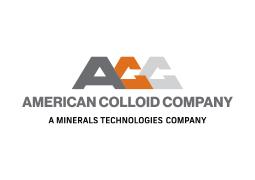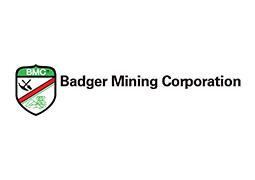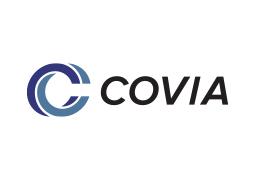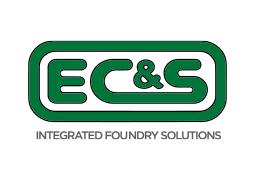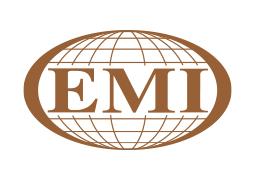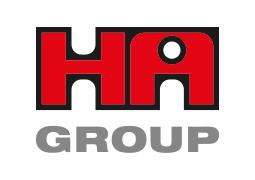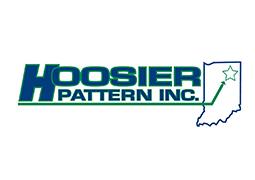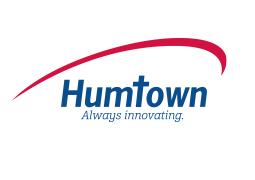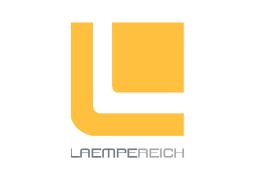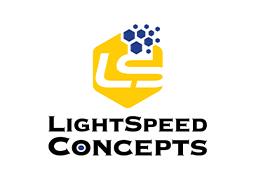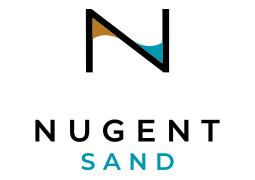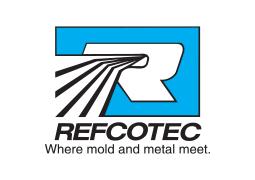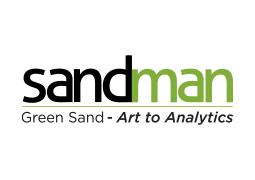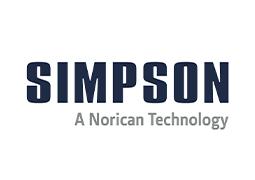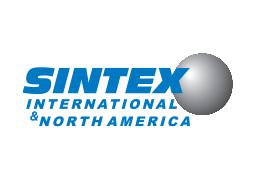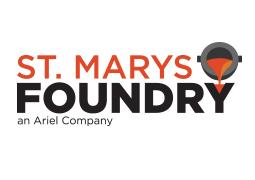2025 Sand Casting Conference
Embassy Suites by Hilton Downtown PittsburghSeptember 9 – 10, 2025
Overview
Join us at the 2025 Sand Conference – where innovators and industry leaders converge! Dive into compelling case studies and dynamic discussions on cutting-edge molding technologies, environmental compliance, and process evaluation. Network with peers through process-focused presentations that spotlight real-world applications, showcasing advancements in process improvement and technology transfer. Don’t miss this opportunity to explore and adopt new methodologies and state-of-the-art equipment poised to meet the industry’s future demands.
For information about sponsorship opportunities at the event, please contact Kim Farrugia at kfarrugia@afsinc.org or click here.
Location
- Embassy Suites by Hilton Downtown Pittsburgh
- Pittsburgh, PA
- September 9 – 10, 2025
Hotel Information
- Embassy Suites by Hilton Downtown Pittsburgh
-
Pittsburgh, PA
-
$189.00
535 Smithfield St.
Pittsburgh, PA 15222
Standard room rate of $189.00/night + fees. To make a reservation, call 847-541-3347 and ask for the American Foundry Society’s negotiated rate (code - A4SI) or by clicking the link below. The hotel’s check-in time is 4 p.m. Check-in prior to the hotel’s published check-in times are subject to availability. Check-out time is 11 a.m.
Conference Agenda
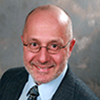
Scott Giese
Sand Conference Chair
University of Northern Iowa
Cedar Falls, IA
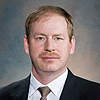
Greg Colvin
Honeywell Aerospace
Phoenix, AZ
Basic Science of Clay

Michelle Ring
Ductile Iron Society
Carmel, IN
Causticized Lignite

Liam Miller
American Colloid Co.
Hoffman Estates, IL
Stopgaps vs. Solutions in Green Sand

Matt Hall
REFCOTEC, Inc.
Orrville, OH
Clay Activation Principles and the Effects of Advanced Oxidation

David Paulsen
Furness-Newburge, Inc.
Versailles, KY
This panel answers “what is clay activation? And how do I improve it?”, focusing on key methods to improve sand properties and foundry efficiency. Topics include the fundamentals of bentonite clay structure, the role of water in activation, and the benefits of causticized lignite as a clay modifier and dispersant. The use of surfactants and advanced oxidation processes to improve clay activation and reintroduce recovered clay will also be discussed. The panel will highlight case studies and practical insights for optimizing sand systems while reducing costs and environmental impact.
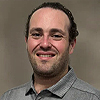
Aaron Kaboff
HA Group
Westmont, IL
With Environmental initiatives increasing across the industry and within our government, it is important to consider new technologies to reduce our effect on the environment. An emerging technology that is showing benefits is Stack Molding. In testing, Stack Molding can decrease the amount of sand, resin, equipment footprint, and manpower needed to produce quality castings. With the added benefit of Silicate and Biodiesel technologies, foundries will be able to reduce not only their emissions, but also the cost to produce quality castings. This presentation reviews the advantages of Stack Molding as well as environmentally friendly resin technologies that optimize the benefits and makes it a premier approach to high production casting environments.
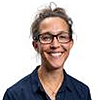
Jennifer Bentz
SRC Pipeflow Technology Center
Saskatchewan, Canada
Clay minerals are an important material input into the production process for many industries, including foundries, and can affect the process even in small quantities, even at 1%. It is therefore important for these industries to measure clays accurately and reliably in a timely fashion. The current method for measuring clays is a manual laboratory method (the Methylene Blue Index), that is time-consuming, potentially unreliable, and subjective based on the visual determination of a titration endpoint by a technologist. SRC’s Pipeflow Technology Centre™ has developed an automated digital clay analyzer that increases the reliability and speed of the active clay measurement that also has online clay analysis capability.

Jay Morrison
Carpenter Brothers, Inc.
Mequon, WI
Effective dust collection is a critical component of modern foundry sand systems. This presentation explores how dust collection systems affect operational efficiency, environmental compliance, and worker safety in the foundry. By capturing fine particulate matter, these systems prevent contamination of the sand, improve casting quality, and reduce wear on machinery. Additionally, proper dust control and monitoring contributes to regulatory adherence and creates a safer, healthier workplace. Key topics will include the mechanics of dust collection, integration within sand reclamation processes, and strategies for optimizing system performance to meet production and environmental goals.

Dave Rittmeyer
Matthews Additive Technologies
Pittsburgh, PA
Moderator:

Michelle Ring
Ductile Iron Society
Carmel, IN
Panelists:

Missy Gruwell
Simpson Technologies Corp.
Naperville, IL
Monica Fisher
HA Group
Westmont, IL
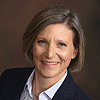
Shelly Dutler
KE Collab LLC
West Dundee, IL
Marketing isn’t just for sales. This panel will share practical ways technical experts can support company goals through communication, branding, and outreach.
A look at personal branding for technical employees—how simple, everyday actions can help you represent both yourself and your company more effectively. Then, a case study of a recent product launch will be presented from a marketing point of view. From initial trials through foundry production, the result wasn’t just strong sales, it was lasting customer support driven by performance and trust. Finally, we’ll discuss the role of technical education as marketing. Creating useful content—whether it's technical papers, how-to guides, or videos—can help customers understand your products and expand their foundry knowledge base. This panel offers straightforward, real-world examples of how marketing and technical can work to support each other.
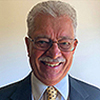
Tom Prucha
IJMC Editor
Metal Morphasis LLC
Rochester Hills, MI
Sand casting continues to offer the most economical approach to produce complex shaped metal components in the widest variety of cast materials. The IJMC, along with the AFS Transactions, is the best repository for papers on the global advances in research and technology helping to present that information and enhance our knowledge and understanding of sandology. Over the past few years numerous papers of various topics that include chemical binder system and bond development, additives, sustainable materials and beneficial reuse, alternative sands and aggregates, new mold and core making processes, process simulation and modeling, sand testing and evaluation techniques, sensor development, Additive Manufacturing -3D Sand Printing, data collection and Industry 4.0, and other optimization research are some of the areas concerning molding methods and materials that have been published in the International Journal of Metalcasting (IJMC). This talk will review some key findings from these papers and potential areas for further investigation to help to continue to advance sand technology for metal castings.
Drinks & Appetizers

Joe Muniza
ASK Chemicals
Dublin, OH 
Aaron Kaboff
HA Group
Westmont, IL 
Collin DeWood
REFCOTEC
Mason, IL
The shakeout process in foundries is a critical stage where molds are broken apart to retrieve castings, but it is also a significant source of odor and smoke emissions. Regulation of these emissions, primarily caused by the thermal decomposition of organic binders during casting, continue to come under higher scrutiny This presentation explores innovative binder technologies aimed at mitigating odor and smoke generation during core / mold making, core storage and during the shakeout process. By examining advancements in low-emission binder formulations, the presentaiton will demonstrate the effectiveness in reducing volatile organic compounds (VOCs), smoke and odorous compounds. The presentation will also highlight the integration of these technologies with process optimizations to achieve sustainable casting operations. Results from pilot trials and industrial applications demonstrate that these binder solutions not only reduce environmental impacts but also improve air quality and regulatory compliance within foundry operations. This research underscores the potential of binder innovations to align foundry processes with evolving environmental standards while maintaining casting quality and efficiency.
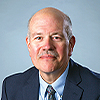
Brian Rachwitz
EJ
East Jordan, MI
Monitoring sand system properties is important for maintaining the long-term stability of green sand casting processes. At times changes made to the sand system may seem minor but can result in significant changes within the system affecting casting quality and cost. A process monitoring testing program and data analysis of usage/generation of materials can help ensure that issues are detected quickly, and actions can be implemented to maintain stability.

Lauren Innis
The Lawton Standard Co.
De Pere, WI
Pre-recorded Presentation
Properly set sand testing frequency and can improve process control—but when testing frequency doesn’t match operations, it can mask variation or even create it. This presentation draws on examples from foundries, showing how overly frequent Methylene Blue testing led to unnecessary adjustments and increased variation, while other fixed-schedule testing can miss process shifts. Finding the right test frequency can result in meaningful data and stable operations.

Dorothy Havlin
The Nugent Sand Co. Inc.
Norton Shores, MI
Sand segregation poses significant challenges to mold and core-making processes which can adversely affect casting quality. How and why does segregation occur and what consequences can result from variability and in sand distribution.
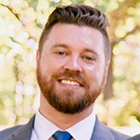
Kiel Krause
American Colloid Co.
Hoffman Estates, IL

Michelle Ring
Ductile Iron Society
Carmel, IN
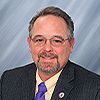
Travis Frush
American Foundry Society
Schaumburg, IL
This presentation will provide a preview of the 2026 launch of the 6th Edition of the AFS Mold & Core Test Handbook offered in a new digital publication platform. With a focus on AFS’s efforts to improve digital accessibility to its various publications, a mobile-friendly E-Reader application platform is being developed to add functionality and interactive resources to improve the user experience. With video, live links and downloadable spreadsheets to enhance the AFS standard mold and core test procedure utilization, the 6th Edition handbook will offer added value to your operation or laboratory. Key features of the E-Reader platform will be defined, explained and highlighted with a live demonstration of the upcoming handbook release. This project is possible through research sponsored by the Defense Logistics Agency Information Operations, J68, Research & Development, Ft. Belvoir, VA and DLA Troop Support, Philadelphia, PA.
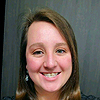
Caitlyn Dickson
EJ
Elmira, MI
Effective technical audits/visits start with prework and preparation. This presentation reviews what to know before the visit, and the value of reviewing your green sand system and data collection ahead of time. By understanding system turnover, equipment performance, and key process variables upfront, you can focus efforts and the result is a more effective visit.
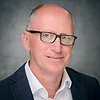
Jeff Krause
HA Group
Westmont, IL
This presentation will review the status of regulatory developments related to exothermic products as they concern the metal casting industry. In September 2023 DOT's Pipeline and Hazardous Materials Safety Administration (PHMSA) issued a public notice explaining how DOT is currently interpreting transport regulations for products containing thermite, such as exothermic sleeves and hot topping products. The notice states that such products will be presumptively classified as explosive (Class 1), and upon completion of classification testing may be reclassed as flammable solids (Class 4.1), but no less. This position has serious implications for the foundry industry, which is one of the larger identified users of thermite for industrial applications, and which currently treats such products as non-regulated. We will review actions AFS and a consortium of producers has taken to address this issue both with PHMSA, and with a United Nations working group focused on developing new tests, criteria and hazard mitigation requirements for these products. We will also discuss hazards presented by these products and actions you can take to manage risks associated with their use in your facility.
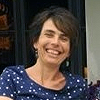
Carola Basaj
CWC Castings
Muskegon, MI
Pneumatic Reclamation

Mark Cotton
Simpson Technologies Corp.
Alpharetta, GA
Thermal Reclamation
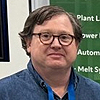
Zach Meadows
EC&S
Birmingham, AL
Clay Reclamation
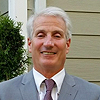
Mark Pine
Sinto America
Grand Ledge, MI
Kylee Rothenburger
MPS Mankato LLC
Mankato, MN
Registration
AFS Member:
$750.00 Early Registration (Ends 8/5/2025)
$900.00 Standard Registration
Non-AFS Member:
$1,125.00 Early Registration (Ends 8/5/2025)
$1,350.00 Standard Registration
AFS presents a variety of technical and management conferences (in both in-person and virtual formats). The refund policy for AFS conferences is as follows: 1) Substitutions are accepted at no charge at any time up until the start of the conference; 2) Full refunds are offered if AFS is notified in writing of cancellation at least 30 days in advance of the conference. No refunds or credits are available for less than 30 days written notice.
